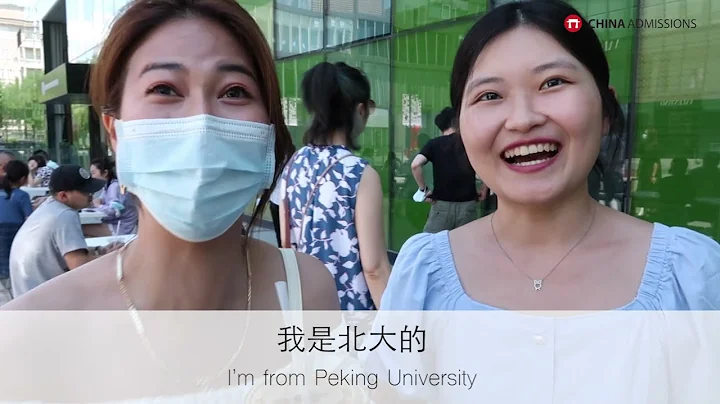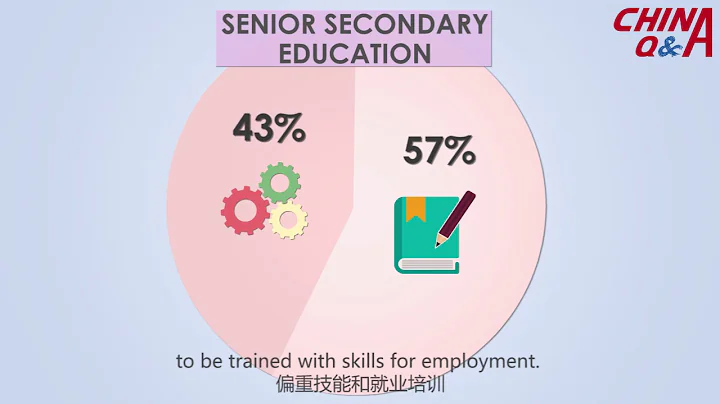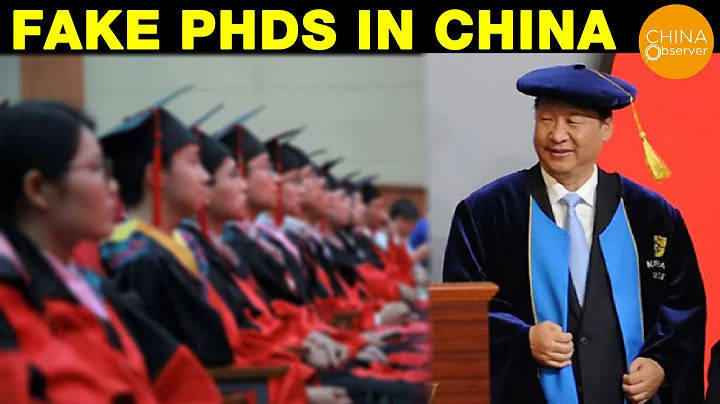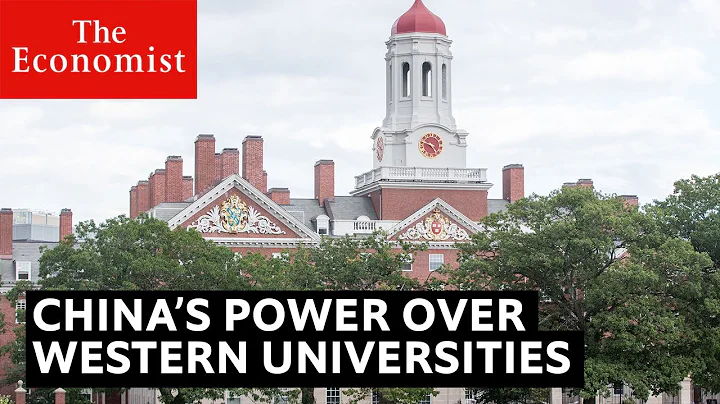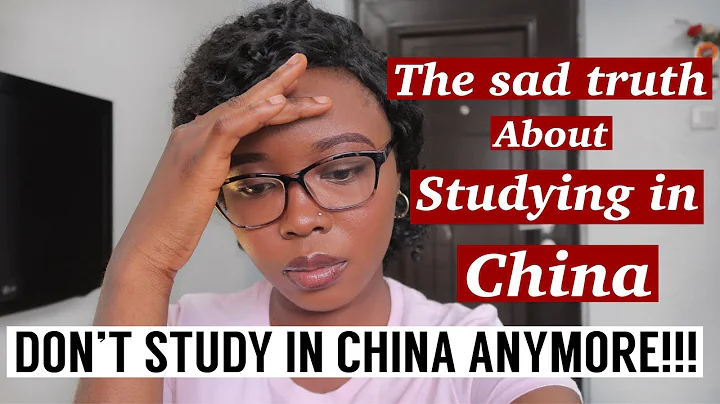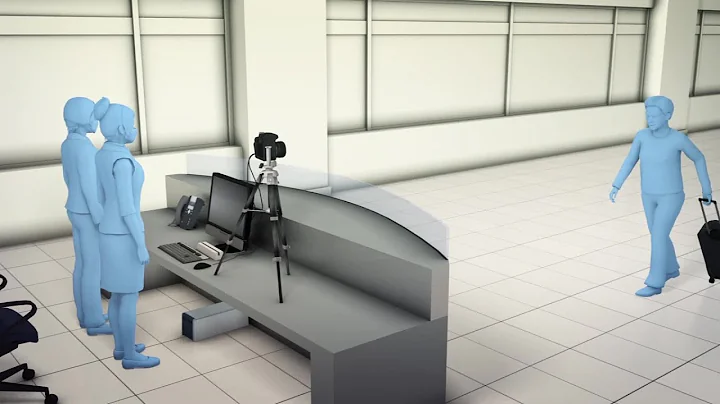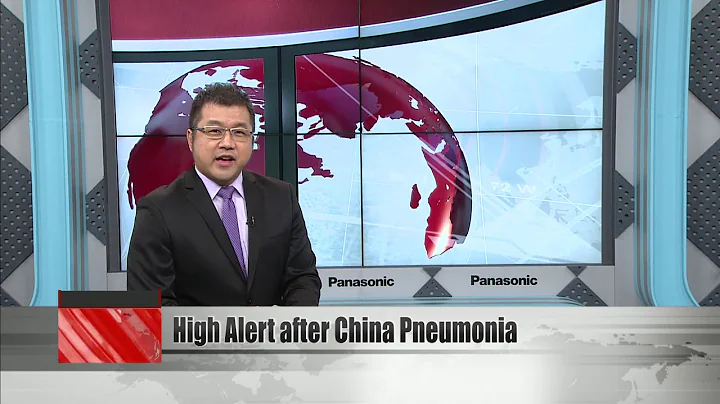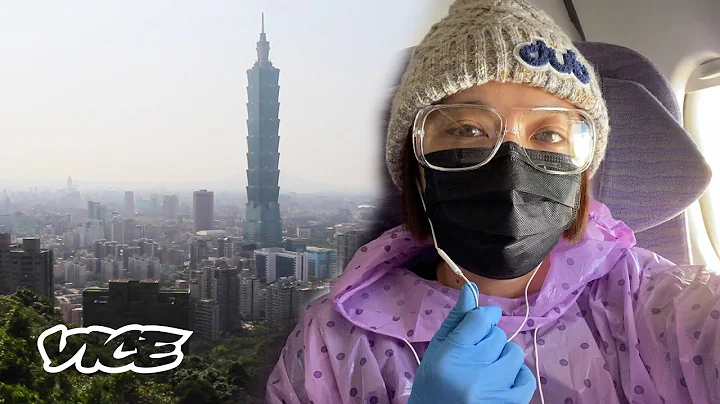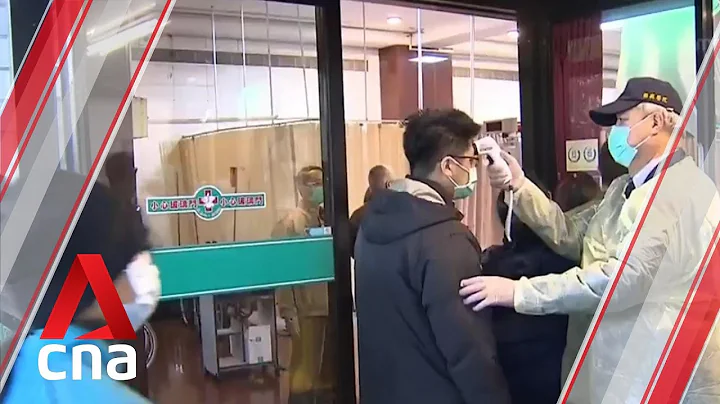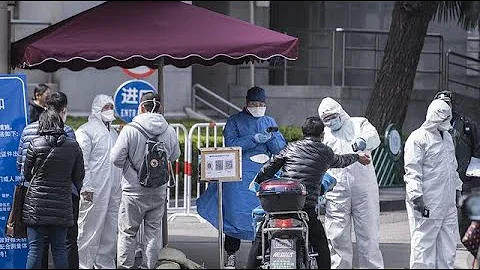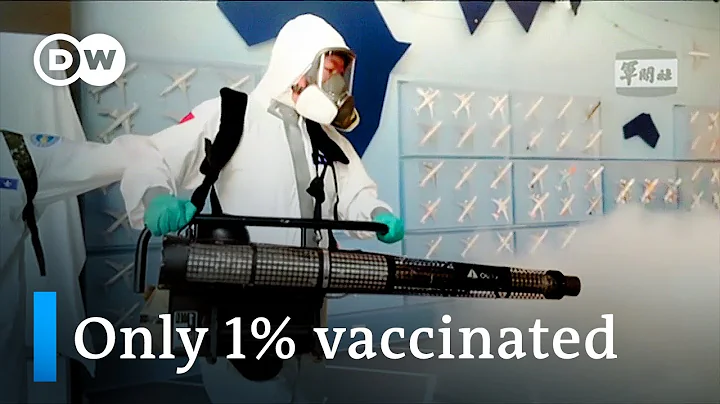Next stop, university teachers

Comparison of the number of doctoral graduates in China and the increase in the number of full-time teachers in ordinary universities from 2004 to 2017 Note 1: " China Statistical Yearbook " always releases the statistics of the previous year in a certain year (such as "China "Statistical Yearbook 2010" actually describes the situation in 2009), and the latest one is "China Statistical Yearbook 2018". Since the "China Statistical Yearbook 2005", doctoral students have been listed as a separate category for statistics. Previously, they had been merged with master's students into a "graduate student" category. Note 2: The increase in the number of full-time teachers in general colleges and universities is obtained by subtracting the number in a certain year from the number in the previous year. The number in 2018 has not been released yet. Data source: "China Statistical Yearbook" (2004~2018) Tabulation: Li Yajuan
When Liang Jun was visiting an academic forum, he saw someone posting a message asking whether he should become a postdoctoral fellow in and . He replied without hesitation: Don’t go!
In recent years, there have been countless similar responses to posts about consulting faculty about postdoctoral matters. "Those who have come before" issue a warning to those who come after.
Faculty Postdoctoral Fellowship was originally established by Zhejiang University 14 years ago to select outstanding faculty members. Its selection standards and treatment are higher than those of ordinary postdoctoral fellows. Four years after the implementation of
, Zhejiang University abolished the postdoctoral system for teachers. However, more and more universities are now implementing this system.
Recently, some scholars published an article on a blog saying that postdoctoral teachers in some universities have begun to change their taste.
Fourteen years after the birth of the faculty postdoctoral system, the controversy it has caused is as high as the number of people entering this system.
The last step of "Doctor Earth"
Liang Jun's reply in just a few words is also a summary of his three-year postdoctoral career as a teacher.
In 2014, Liang Jun graduated with a doctorate from an institute of the Chinese Academy of Sciences. After he got several offers, he suddenly received an interview notice from a university in his hometown, the capital city. Liang Jun was overjoyed. He wanted to go back to work in a university in his hometown, but he never had a suitable opportunity.
After the first round of interviews, the school was very satisfied with him and agreed to hire him as a lecturer. After the two rounds of interviews, Liang Jun felt that the job was a sure thing, so he rejected other offers and prepared to return to his hometown.
Just before signing the contract, the teacher in charge of recruitment told him that young teachers must have postdoctoral experience. The school's attitude is very clear: if you don't do postdoctoral work as a teacher, you can't sign the contract. The school promised that after he graduates as a postdoctoral fellow, he can be directly hired as a lecturer without setting any threshold.
After Liang Jun joined the job, the dean came to talk to him. This time, the conditions have changed again: Liang Jun must obtain a National Natural Science Foundation of China and publish an SCI paper.
Liang Jun discovered that several requirements put forward by the dean were the school’s criteria for hiring associate professors.
Liang Jun felt that he was riding a tiger - he had already been employed for a month, he had no other alternative offers at hand, and the time to find a job had passed.
Almost at the same time, Wu Jing, a doctoral graduate who applied for a lectureship at the school in the same year as him, had a similar experience.
Wu Jing recalled that the school first promised to hire her as a lecturer, but later changed its position and asked her to become a teacher postdoctoral fellow first, and then automatically become a lecturer after leaving the school. When she received another call from the teaching secretary, the assessment condition changed to obtaining two provincial and ministerial level projects. When she signed a contract with the school, the conditions were to obtain a national-level project or publish a paper in a designated academic journal. The journals designated by the school are all top domestic social science journals, and some of them are not related to Wu Jing's research field.
Although Wu Jing felt that it was difficult for her to meet these conditions as a newly graduated Ph.D., she still agreed to sign a contract with the school. She hoped to continue doing research after graduating from the Ph.D., but other offers at hand could only give her non-scientific research positions.
When Liang Jun and Wu Jing were looking for jobs, they discovered that returnee PhDs could often get teaching positions directly, while "local PhDs" like them who graduated from domestic universities had to face the hurdle of becoming a teacher postdoctoral fellow.
"Integrate postdoctoral training with teacher selection"
The teacher postdoctoral system that has caused Liang Jun and Wu Jing to struggle was originally established by Zhejiang University 14 years ago to solve the problem of uneven levels of new teachers.
In April 2005, Zhejiang University took the lead in launching a postdoctoral system for teachers. Liu Jirong, then deputy director of the Personnel Office of Zhejiang University, once pointed out in the article "Exploration and Practice of the Teacher Postdoctoral System" that "the newly added young teachers...the practical experience and innovative ability in teaching and scientific research are still insufficient." In addition, " Although the school has implemented a personnel agency contract management method for new employees, the phenomenon of 'can get in but not get out' still exists to varying degrees, and the talent transfer mechanism has not been effectively established."
Liu Jirong now serves as the director of the Personnel Office of Zhejiang University. He recalled to the reporter of China Youth Daily·China Youth Online that at that time, he wanted to allow postdoctoral fellows to enter the teacher reserve team in advance. He also wanted to extend the inspection period to combine the training of postdoctoral fellows with the teachers. Selections are combined together.
At that time, the selection threshold for faculty postdoctoral fellows was higher than that for ordinary postdoctoral fellows. For example, in addition to academic ability, language expression ability was also tested in order to prepare for future teaching. In addition to scientific research work, faculty postdoctoral fellows also have to undertake some teaching tasks. Corresponding to the high threshold, the salary of faculty postdoctoral fellows is also higher than that of ordinary postdoctoral fellows.
The new principal arrived in the summer of the second year after this system was implemented. The new president from Tsinghua University investigated the personnel team of Zhejiang University and found that "the localization phenomenon is serious."
"Inbreeding" has always been a chronic problem in domestic universities, and Zhejiang University has still not been able to reverse this trend after implementing the faculty postdoctoral system - there are many supervisors who want their doctoral students to stay as faculty postdoctoral fellows after graduation, and then stay. Teach in school. The new principal requires controlling the proportion of graduates staying in the school and increasing the proportion of talents from overseas universities and other prestigious domestic schools.
At the end of 2008, the last faculty postdoctoral fellow from Zhejiang University entered the station, and this system was terminated.
Liu Jirong learned from the postdoctoral management department of the school that in more than three years from April 2005 to December 2008, a total of more than 300 faculty postdoctoral fellows were selected, and 72% of the faculty postdoctoral fellows became formal teachers at Zhejiang University. When the
system was born, there were not many schools in China that followed up. Li Ming, then an assistant researcher at the China University of Geosciences, wrote in the article "Issues and Thoughts on the Implementation of the Teacher Postdoctoral System in Universities" that because people often want to directly become formal employees of the school and are unwilling to accept the assessment of two-year postdoctoral work, they will Choosing schools that do not implement the postdoctoral system for teachers is also the reason why some universities do not implement this new system.
However, after Zhejiang University terminated this system, the teacher postdoctoral system is in the ascendant in other domestic universities. Xu Shirong, then associate researcher at the Institute of Higher Education of Zhejiang University of Technology, pointed out in the article "Ten-Year Review and Prospects of Postdoctoral Policies for Teachers in my country's Colleges and Universities" that in 2010, with the deepening of the reform of the internal management system of colleges and universities and the implementation of the talent-strengthening strategy of many colleges and universities, Implementation, in the face of the shortcomings of relatively closed and single-minded existing personnel management, the advantages of the postdoctoral policy's fluidity and openness have been widely recognized, and the number of universities implementing the faculty postdoctoral policy has gradually increased.
On the Xiaomu Chong forum, there are gradually increasing posts asking teachers about postdoctoral matters. People are still looking at this new system in the fog, and people say different things. Some people think that this is a step down for the "local doctors" who have graduated from the school and are staying in the school, and some think it is not bad.
In 2014, when Liang Jun and Wu Jing entered the station, according to Xu Shirong's statistics, as of the end of April of that year, a total of 37 universities across the country had implemented the teacher postdoctoral system, the vast majority of which were in 985 and 211 universities.
Liang Jun's dilemma
Soon after Liang Jun entered the station, he found himself in an isolated and helpless situation.
According to regulations, every postdoctoral fellow has a co-supervisor. Liang Jun said that his co-supervisor paid almost no attention to him. He neither provided him with academic resources nor allowed him to join his research team. He even clearly told him: We each do our own thing.
This doctor of science said that all his research tools are an office computer.
Liang Jun’s dilemma reflects the problems faced by some faculty postdoctoral fellows—these academic newcomers are highly dependent on the help of their co-supervisors to take their first step on the career path.
One interviewee pointed out that during the postdoctoral period as a teacher, he was more dependent on his co-supervisor than during his PhD study, and may even form a personal dependence relationship. Whether it is providing experimental conditions and funds, evaluating talent titles, or obtaining funds or projects, "if he has enough connections, he can help you handle these things easily. If your co-supervisor does not have this knowledge, resources, or he doesn’t want to fight for some resources for you, then it will be very difficult for you.”
On the one hand, he had a cold-hearted co-supervisor, and on the other hand, he was under pressure to produce scientific research results. Liang Jun could only squeeze out research funds from his not so generous salary. He recalled that at that time, he had to pay his own money even to attend academic conferences in other places.
has no scientific research conditions, so it is naturally difficult to publish papers. Liang Jun has only published one SCI paper in the three years he has been in the station. As for the National Natural Science Foundation required by the school, Liang Jun failed to apply for it for two consecutive years. After losing for the second time, Liang Jun panicked. He knew there was little hope of staying in the job, so he quickly looked for job opportunities.
In his third year as a postdoc, when it was time to pay his salary, Liang Jun did not receive the money. He was told that the state would only pay postdocs 24 months’ salary, and the college would not care how he lived after that. Just a few months before this, Liang Jun's daughter was born.
At this time, Liang Jun's top priority was no longer doing scientific research, but finding ways to make money to support his family. In his last year as a postdoc, Liang Jun made some sporadic money by doing projects for his undergraduate teachers. He did the math and found that the total was less than 60,000 yuan.
When he just returned to his hometown and provincial capital city from Beijing, Liang Jun was very excited. From time to time, he eats and hangs out with his undergraduate classmates. But as time went by, he became increasingly reluctant to meet his former classmates.
“Seeing that some of my classmates whose grades were not as good as mine have become associate professors, and some have become company CEOs.” When he graduated from college that year, Liang Jun was recommended to another school for graduate school because of his excellent grades.
"Those were the most embarrassing three years after studying and working for so many years." During that time, faced with assessment pressure and great uncertainty, Liang Jun felt that he was on the verge of depression.
Liang Jun is not an exception. Many faculty postdoctoral fellows face quantitative assessment indicators: what level of funding they have received and what level of papers they have published in two or three years.
Yang Ming, a professor at a university in Jiangsu, said that his school requires faculty postdoctoral fellows to publish five SCI papers within four years and obtain a provincial or ministerial level project. Although they are called "teachers", the school's faculty postdoctoral fellows do not need to undertake any teaching tasks.
As for the quality of the papers, Yang Ming was quite critical: "(Those papers) are not reaching the sky or the ground. There is no breakthrough in theory, and they cannot be combined and applied in practice. They are just following hot topics." He believes that the only advantage is that “The school’s GDP performance has gone up.”
As early as 2011, Li Ming criticized this system in the article "Issues and Reflections on the Implementation of the Teacher Postdoctoral System in Colleges and Universities": "The outbound assessment is based on the work and scientific research results of the postdoctoral teachers within two years. The two-year period is likely to cause some postdoctoral faculty members to seek quick success and quick success in order to obtain better results and be qualified to stay in school, hoping to use shortcuts to greatly improve scientific research results, forming an impetuous academic atmosphere. "
Academic temporary work?
Liang Jun had no choice but to leave because he failed to meet the hard assessment targets. Wu Jing's experience reflects the other side.
Wu Jing’s major is in the field of social sciences, which does not require experiments or relying on co-supervisors to provide research funds. During her more than two years as a faculty postdoctoral fellow, she successfully applied for 1 provincial and ministerial level fund, 1 national level fund, and published two papers. The recruitment targets for
have been met, and two years have passed. Wu Jing hoped to apply for a teacher turnover room from the school. The staff suggested that she be transferred to a lecturer first and then submit a postdoctoral exit report in order to save time.
But both the dean and the secretary rejected this request.
Wu Jing asked her boss to transfer her to a lecturer first, because she also faced a more pressing problem - her 24-month term was about to expire, and she would have no salary after that.The leadership of the
college still requires her to submit an outbound report first, and to "do it according to the standards of a doctoral thesis" - under normal circumstances, an outbound report is much simpler than a doctoral thesis. The reason given by the leaders of the college is that Wu Jing is the first faculty postdoctoral fellow they have recruited and must have high standards and strict requirements. In addition, Wu Jing has to go through the recruitment process again, which means she has to resubmit her application and the school will review and discuss it again. As long as one link fails, her teaching position will be in vain.
Wu Jing finally rejected the "high standards and strict requirements" of the college leaders. Wu Jing was mentally prepared not to be hired since the conditions were changed again and again when she joined the company. She later got a teaching position at another 211 university. The more than two years as a postdoctoral fellow at
was the most stressful period for Wu Jing. She "often dreamed of failing in the college entrance examination" and felt heartache from time to time. When
postdoc came to the station, Wu Jing’s twin babies had just turned 1 year old. She had to write the fund application book while taking care of her two children. Before the
postdoctoral fellow left the station, Wu Jing picked up her children and went home from school, and had to go back to school to continue working overtime. The child often pulls her and refuses to let her go: "Mom has already finished work, so don't go to work overtime." This makes Wu Jing feel sad.
Wu Jing found that many universities are now reducing the proportion of recruiting fresh PhDs as lecturers and expanding the proportion of postdoctoral teachers. She believes that “the school has actually tasted the benefits, because this is the period when they are most energetic in scientific research and the period when output is the highest.” Teacher postdocs are an unstable position. Only by doing well can they be retained. Under such assessment pressure, everyone has to work hard. "If you don't meet the requirements, then you will leave, but your achievements will be signed by this school. For the school, there are only benefits and no harm."
Wu Jing said that even if you do a good job, you still have to get the consent of the school before you can stay. "I think this is a great harm to our young scholars."
In more than two years of postdoctoral experience as a teacher, Wu Jing felt that the school leaders at that time did not regard herself as a reserve army of teachers to train, but held an assessment attitude, "Only when you meet the conditions can you stay; If you don’t meet the conditions, you have to leave.”
When Wu Jing first entered the station, there was not even an office. After a while, the school arranged an office converted from a student study room for these faculty postdoctoral fellows. When the office was opened, there was a sign indicating the student study room at the door. Before entering
, the school promised Wu Jing that her salary would be the same as that of the school’s lecturers. After Wu Jing joined the company, she discovered that her salary was several hundred yuan higher than that of a lecturer, but she had no social security, medical insurance, provident fund, etc., and scientific research awards and year-end bonuses had nothing to do with her.
Wu Jing's voice was very calm when she recalled her experience a few years ago. Because of the differentiated treatment by leaders, the teaching secretary does not take these faculty postdoctoral fellows seriously. Whenever there is tedious administrative work, the teaching secretary will leave the work to these postdoctoral fellows who are outside teachers.
In this regard, Liu Jirong believes that there is a problem with the concept of employment. "You originally intended to attract better teachers through this method. You want people to come to this position sincerely, not to create a little excitement."
“I don’t want to be cannon fodder in this game”
In the spring of 2018, Shi Chao received an offer from his alma mater on the eve of his doctoral graduation.
This doctor of engineering claimed that he "got almost all the honors he could get" during his doctoral studies. The school teachers admired this outstanding student and expressed their hope that he would stay at the school to teach and directly hire him as an associate professor.
Prior to this, Shi Chao had already received an offer from the top research institute in his industry. The unit located within the Second Ring Road of Beijing could provide him with a generous salary and a first-class platform.
Faced with the invitation from his alma mater, Shi Chao was moved. Just when he rejected the job at the institute and was about to sign a contract with the school, the conditions offered by the school changed - he would first serve as a teacher postdoctoral fellow for two years before being transferred to another position.
The research group where Shi Chao was studying for his PhD had a large number of people, and people joined and left every year.By understanding everyone's offers, Shi Chao found that in the past few years, the recruitment requirements set by universities for postdoctoral faculty were quite reasonable, and the retention rate was relatively high. However, in recent years, the assessment standards for faculty postdoctoral fellows have improved a lot. For example, some universities require faculty postdoctoral fellows to be selected into the "Four Youth" talents (referring to honorary titles such as National Outstanding Youth, Youth Yangtze River, Youth Top-notch, and Youth Thousand Talents - Reporter Note) to stay in school. Shi Chao calculated that the "Four Youths" add up to more than 1,000 people each year, and there are tens of thousands of postdoctoral fellows across the country. Some schools require faculty postdocs to receive first-class funding or special funding from postdoctoral funds, but very few postdocs can receive this level of funding every year.
Moreover, under the dynamic assessment mechanism of "double first-class", many schools treat faculty postdoctoral fellows as thesis makers. "As long as the recruitment base is large enough and there are enough papers and scientific research projects, there will definitely be some." quality".
Shi Chao judged that if he became a teacher postdoc, it would be equivalent to standing at a low starting point in the game of professional title competition.
He flatly rejected the request of his alma mater and immediately began to look for other jobs. "If the school had said from the beginning that I would be a teacher postdoctoral fellow, I would not have submitted the application at all."
Among Shi Chao’s doctoral classmates, similar choices are very common: if a better school requires teachers to be postdoctoral fellows before being appointed, and another second-tier school directly offers teaching positions, then everyone will generally choose the latter. .
Except for Shi Chao, all those who applied for teaching positions at the school last year had their contracts broken.
Shi Chao feels that the postdoctoral faculty system has changed a bit in recent years, especially after the implementation of "promote or leave". "The pressure and assessment requirements on us are high, but the conditions provided to us are very low." .
Shi Chao visited the United States for a year during his doctoral studies. He discovered that assistant professors (AP) in the United States have the power to independently recruit doctoral students and have their own research facilities. However, domestic faculty postdoctoral fellows can only be members of someone else’s team and do not even have the power to recruit master’s students. "I don't object to him raising our standards, nor do I object to him asking for funds or projects, but you can't let me do these things out of thin air. I want treatment but not treatment, I want students but not students, I want a team but not a team, and I want a laboratory but not Laboratory, what should I do?"
A year has passed since the incident. Shi Chao now believes that it may be that the school leaders were facing greater pressure from the "double first-class" assessment, so they wanted to recruit a large number of postdoctoral teachers and improve the assessment standards. Quickly raise some quantitative indicators before 2020.
This is exactly the phenomenon criticized by the aforementioned scholars in their blog posts: without occupying the school’s scarce fixed staff, using higher material benefits and smaller social costs to attract a large number of Paper Producers (paper producers—— Reporter's note) Rapidly improving the school's scientific research performance in a short period of time is a good deal from an economic point of view.
"I hope we have to grasp the scale properly and not create a new round of the Great Leap Forward in higher education." Shi Chao said.
Yang Ming, a professor at a university in Jiangsu, discovered that the teacher postdoctoral system generally exists in today's "double first-class" universities or some 985 and 211 universities. "Ordinary schools generally do not have this phenomenon."
Yang Ming believes that this system is indeed good for the school. "The results of higher education have gone up." However, for teachers and postdoctoral students, they are often married at this age. In order to stay in school, their health and family will be affected.
A faculty postdoctoral fellow in Yang Ming’s college had not yet met the assessment standards. Yang Ming saw that although this postdoctoral fellow had a family, his living situation was similar to when he was single. “He stayed in the laboratory all day long, and his expression was always very serious. Seriously, life is scientific research, and scientific research is life."
The faculty postdoctoral fellows at Yang Ming’s school are not responsible for teaching. They only need to write papers based on the assessment standards listed by the school. “The pay is very good, the standards are very high, and the pressure is very high.”
As for those who cannot meet the requirements, "Intellectuals want to save face. If they know that they cannot meet the standards, they will take the initiative to find a school that is worse."
Two years ago, when Dr. Lin Yang was looking for a job after graduation, “his mind was filled with academic ideals.” The only criteria when choosing a job were “a good platform and a good school.” He chose to work as a teacher postdoc at his master's alma mater, hoping to stay in school.
Lin Yang believes that being a teacher postdoc will indeed accelerate the growth of young people and force them to think about projects and papers alone. If they directly join the job and become a lecturer, they may be more unorganized.
Two years have passed. Lin Yang's scientific research results have far exceeded the assessment standards, but he decided to leave.
Lin Yang and his wife are both only children. In the past year or two, the issue of retirement care for their parents has begun to come up on the agenda of these two young scholars. They plan to return to work at a university in their hometown together.
"Home is the starting point and the end point of academic research." This doctor of literature believes, "If home no longer feels like home, what hope is there?"
Lin Yang said that while working as a teacher postdoctoral fellow, I have always felt inferior because of my identity. "When a young doctor starts looking for a job, one of his most important expectations is to find a stable, well-established job. If he cannot achieve this goal after studying for a doctorate for three years, it will be a bit unacceptable," Lin Yang said, "But In front of employers, young doctors have no bargaining capital.”
Central South University professor Yu Hailiang believes that Chinese people generally prefer stable, well-established jobs, because if a person does not have a well-established job, his salary will be lower. However, this system is unreasonable, and universities should weaken this form. Teachers should be treated equally regardless of whether they are staffed or not.
Lin Yang said that one of the purposes of his interview is to hope that the employer will be kind to every young doctor and every person who is willing to dedicate his youth to the unit. “Because the circle of doctors is very small, if a person is treated unfairly in this unit, Fair treatment will affect the talent introduction work of this unit within a few years."
Will tomorrow be better?
In 2017, Liang Jun came to his current school and became a lecturer.
In their new positions, Liang Jun and Wu Jing are facing the pressures common in "green pepper" metropolitan areas - heavy teaching tasks and high pressure on scientific research. But they all said that their mentality was much better than when they were teacher postdocs.
Now as a formal teacher, he can arrange classes and scientific research tasks with peace of mind, and colleagues also treat each other as equals.
Wu Jing still felt a little regretful. When she signed up for a new school, the school had just begun to implement the "promote or leave" system. This means that if she is not promoted to associate professor within the time limit stipulated in the contract, she will be fired. "It's really one step too late, every step too late." In recent years, the "promote or leave" system has become another "stuck" system for newly hired college teachers.
In recent years, PhDs have become less and less of a “scarce product.”
Liu Jirong has been in charge of human resources at Zhejiang University for many years. He remembers that 20 years ago, even the problem of separation between postdoctoral fellows and their spouses was solved by the state.
Yang Ming started working in the early 1990s, when few even had master's degrees. Yang Ming's school wants to recruit a master's student to teach, and it also wants to arrange jobs for her family members.
According to data from the National Bureau of Statistics, since 2013, universities across the country have added approximately 30,000 full-time teachers every year, and the number of doctoral graduates each year is more than 50,000, and the trend is still increasing. There are also 300,000 to 400,000 overseas students. Returnees.
Ph.D.s often look forward to entering universities and doing research after graduation. However, the supply exceeds demand for many years, so temporary positions such as postdoctoral positions have become a major employment choice for Ph.D.s.
In addition, since the 1980s, the reform of personnel systems in colleges and universities has been carried out for more than 30 years.
has gone from "breaking the iron position, iron rice bowl, and iron salary" and embodying the principle of distribution according to work, to promoting the reform of establishment management, job management, personnel recruitment, and salary distribution, and then to comprehensively implementing the open recruitment and employment system. In the tide of personnel system reform in universities, "teacher postdoctoral" is just a small splash.
Liu Jirong said that before this (implementation of the faculty postdoctoral system), Zhejiang University had begun to implement the "promote or leave" system. After the faculty postdoctoral system was implemented, the two systems were connected - if the faculty postdoctoral fellow failed to graduate with a doctorate within 6 years, ~If you are promoted to a deputy senior professional title within 7 years, you will be eliminated or transferred.
Liu Jirong mentioned that people who are eliminated in this process are often not because of insufficient level, but due to the proportion of professional titles - if there are few vacant positions, the competition will be fierce, and the more powerful the subject, the more intense the competition, so This "is not completely synonymous with 'survival of the fittest'".
Professor Yu Hailiang of Central South University has worked at the University of Wollongong in Australia for many years. He found that there is no postdoctoral system for teachers abroad, and top domestic universities such as Tsinghua University have not established this system.
Yu Hailiang believes that teachers staying in schools to teach really depends on their "performance." The current general rule is that when recruiting teachers in research-oriented universities, they mainly look at their scientific research level. If the scientific research results during the postdoctoral period are average, even if the teaching level is high, it will be difficult to stay. This is also related to the current popular concept. People generally assume that as long as a person does good scientific research, he will be able to guide students.
At the University of Wollongong, if a teacher cannot recruit students, the teacher will either transfer to another department, or take a sum of 1.5 to 2 times the annual salary as compensation and say goodbye to the position.
In domestic universities managed as public institutions, as long as a teacher joins the staff, even if his performance is mediocre, it is difficult for the school to let him leave. The appointment system, employment system, and "promote or leave" system implemented by domestic universities in recent years are all aimed at breaking this de facto tenure system.
Liu Jirong believes that different universities have their own development stages. For growing local universities, the teacher postdoctoral system is still very meaningful for the construction of their talent team, but some changes in the implementation process will make young talents Not feeling very well.
For Shi Chao’s alma mater, the consequences of last year’s collective breach of contract soon became apparent. Shi Chao heard from a teacher that his alma mater’s “recruitment situation this year is not very ideal.”
Liang Jun had several PhD classmates who went to a prestigious school in Guangzhou to work as postdoctoral teachers. He found that after several years, only one of them successfully stayed at the school. Nowadays, whenever any junior students ask him about becoming a postdoc as a teacher, Liang Jun will try his best to dissuade them.
Wu Jing hopes: "I don't want to see everyone's academic path after graduation be too difficult, or experience so many setbacks like me."
However, in the era of "double first-class", the situation faced by postdoctoral faculty may be even more difficult. severe.
Yang Ming believes: "'Double first-class' is a cycle that changes every few years. Those who get it must keep it, and those who don't have to fight hard. The competition is more cruel than before." Come to higher and higher assessment indicators.
"The school's baton is here, and it is difficult to make fundamental changes."
(At the request of the interviewee, Liang Jun, Wu Jing, Shi Chao, Yang Ming, and Lin Yang are pseudonyms) (Li Yajuan)
